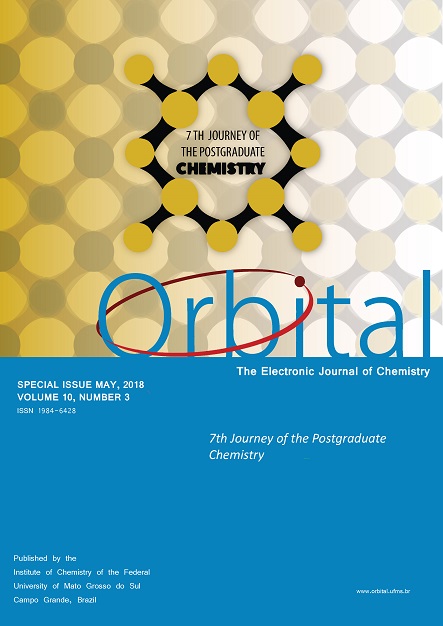Chemical Recycling of Poly(ethylene terephthalate) (PET) by Alkaline Hydrolysis and Catalyzed Glycolysis
Published 2018-05-26
Keywords
- poly(ethylene terephthalate),
- chemical recycling,
- glycolysis,
- hydrolysis,
- bis(2-hydroxyethyl) terephthalate
- terephthalic acid ...More
How to Cite
Abstract
The poly(ethylene terephthalate) (PET) is a thermoplastic polyester, non-degradable in the environment with high resistance to chemical and physical agents. Due to the substantial amount of waste generated and accumulated in the environment, chemical recycling of post-consumer PET has been considered the most successful method for polymer recycling. This work presents results of chemical recycling of post-consumer PET via alkaline hydrolysis and glycolysis. The alkaline hydrolysis is considered the most suitable to the green chemistry and this method can be carried out using mild reaction conditions. The process results in a good yield (97%) to terephthalic acid (TPA). The catalyzed glycolysis of post-consumer PET was carried out in a short reaction time and relatively low temperature, with bis (2-hydroxyethyl) terephthalate (BHET) yield of 75%. TPA and BHET were characterized by FTIR and 1H NMR techniques. The analyses proved to be successful in obtaining both products. Therefore, this work contributes to the chemical recycling studies of PET waste and encourages further studies along this research area.

